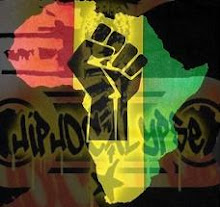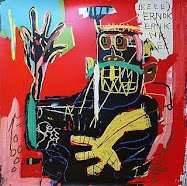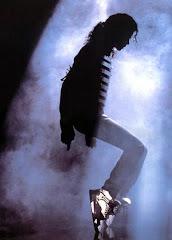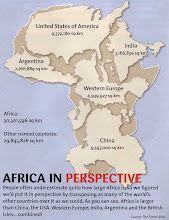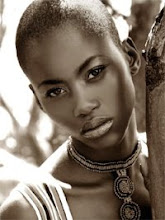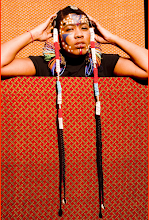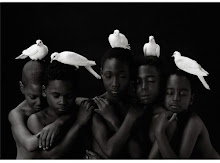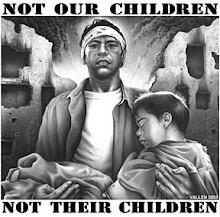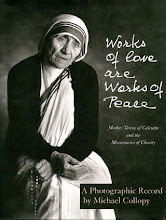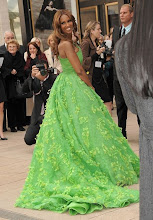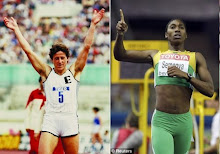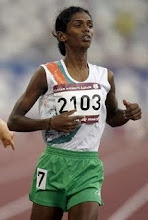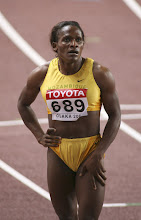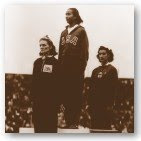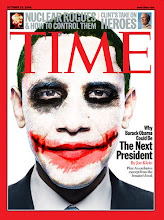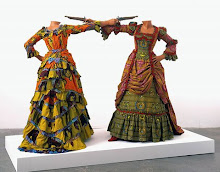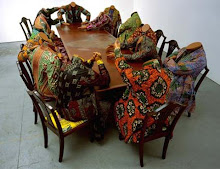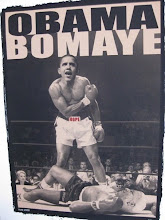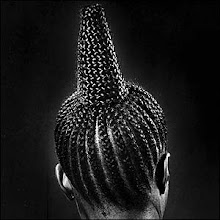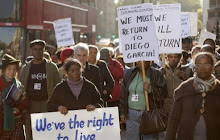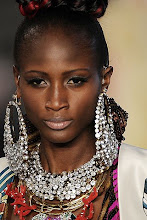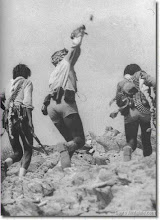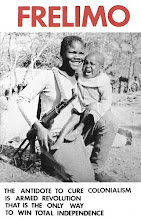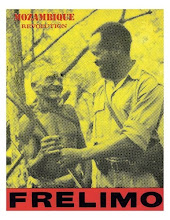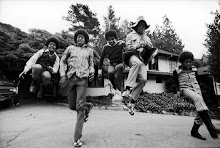Once
upon a time,
a young man gleaned
from an archaic continent creamed
in the light fantastic;
from the borders of history baked
before an African sun
came to this kingdom
of Babylon.
This kingdom became his home.
And as time turned its page
suit followed his age -
this now withered warrior
is whom I see before me.
The way his sits shows
that his toes were once kissed
by born again rain dancers.
You can read the wisdom
in his posture, you can taste it.
With his back straight
face forward, shoulders broad
you can tell that he was made to lord over many;
you can sense the toasts of the past, those-loyal-to-life
casting coats his way.
The dustbin he sits on wears
the ghost formation of a throne cast in light
shown only if you squint with your third eye
and let ether-light loan itself to the moment.
History is grooved in his garments.
The heaviness drags his movements
as chains clink on his collar.
The Mississippi that burns on his right shoulder
is dowsed with the water ways
of Saro Wiwa on his left.
The pride of escaped slaves rises from them
like the steam created when magma hits seawater.
The zest of greatness rests on his chest
gracing all that is he, intoxicating all that is me
culminating in his presence growing, dignity glowing
seven inches past his torn and tattered clothes.
But in the wake of all this glory,
I sense his light dimming towards its close.
So I wish.
I wish for a star studded tobacco leaf
filled with newly made mortal matter
meaning for him to smoke it
and defer the coming of the last latter
so he may live longer
but all that I reap is the wind.
Instead
I reach into my pocket
and retract a handfuls of me
disguised as silver coins
and drop it into the empty coffee cup
beside him “Sir”, I whisper foolishly
trying to use those coins as payment
to the pastures of his spirit. “Sir”, I say
once again, expecting to gain entrance
to the campsites of his soul, “Sir, Old
man, how did it get like this?”
Silence
In the empty seconds that follow
He is still. Like a gathering of mango
farmers awaiting the moon rise
or children, breaths held
awaiting the Griot’s first message
like a choir of pencils
waiting to chorus the words
or wash women of the Nile
awaiting Cleopatra’s descent
He is still.
Then he stirs.
He stirs like a mountain
streaked with silver dread locks
like a black tide coming in
commanding time to witness
one of its many prodigal sons
he stares and says…
“Son,
the world just ain’t big enough no more.
We have devalued the mystery of life
for the values of materialstic living
I am from a time when whole villages mourned
our passing, and now the mass complain
that we live too long.
Son, I am past my die-by date.
These silver pieces of your soul means
that I shall marvel at the moon once more
but it is far too late, move on son
you can do no more.
Just take with you this truth
we are the ‘yous‘ of yesterday.
You will become the ‘wes‘ of tomorrow.
If you do not wish to live on a trash can like this
then you must walk in our shoes today.”
The silence after he speaks
is stone aged.
I walk gently into the night,
thankful to have been kissed
with a vital catalyst
for living happily
ever
after.
from Thirteen Negro Fairy Tales, by Inua Ellams 2005











_6115.jpg)


























